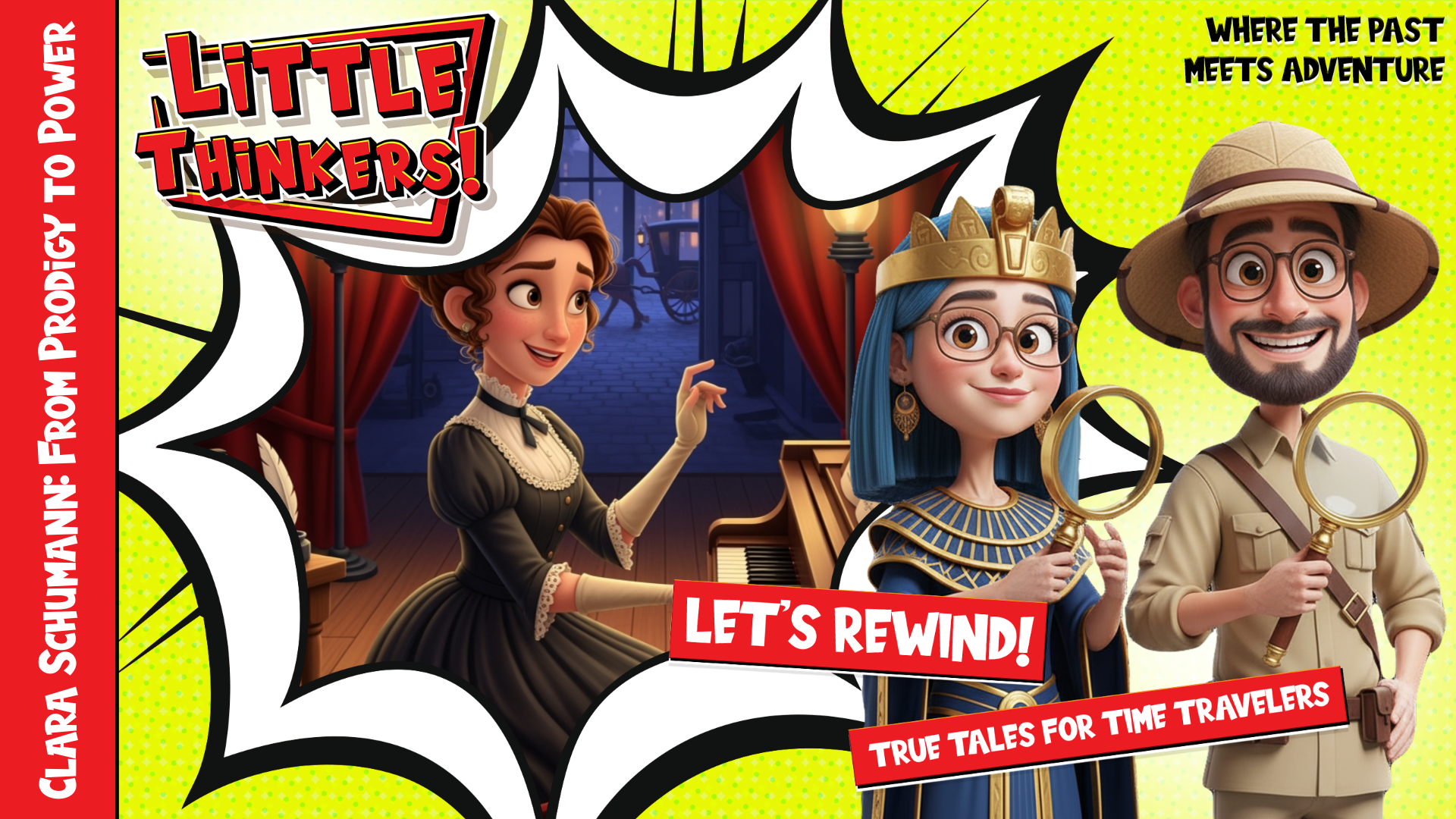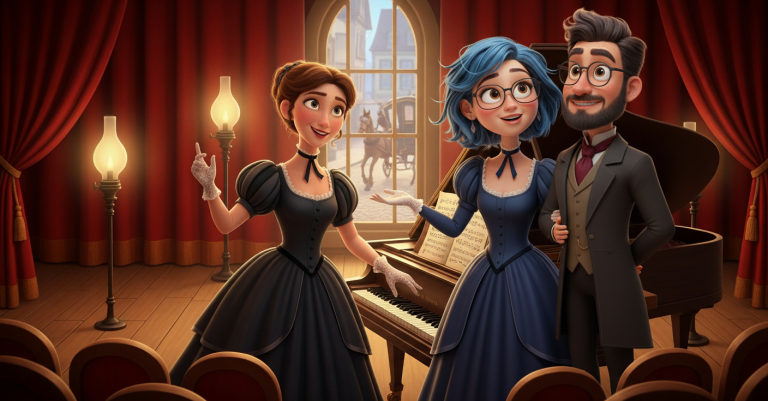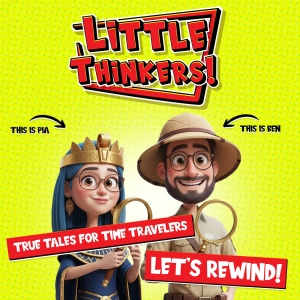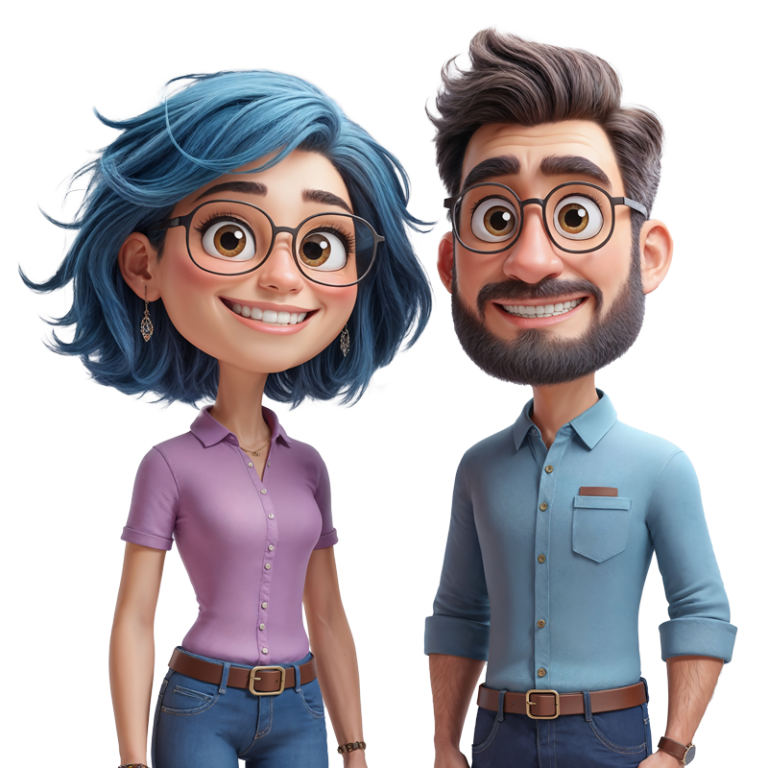The Amazing Clara Schumann: The Little Girl Who Changed Music Forever
Imagine Being Nine Years Old and Playing Like a Superstar
Picture this: You’re sitting in a huge, dimly lit hall in Germany almost 200 years ago. Gas lamps flicker like giant candles, casting dancing shadows on the walls. The air smells like warm wool and lamp oil. Suddenly, a tiny girl walks onto the wooden stage. Her name is Clara Wieck, and she’s only nine years old – maybe the same age as you or your little sister! Her small shoes tap lightly as she walks to a massive piano. The crowd of fancy dressed adults grows completely silent. They’ve heard rumors about this child who plays piano like magic. Clara sits down, places her little hands on the ivory keys, and begins to play. The sound that fills the hall is so beautiful and powerful that everyone holds their breath. This is how one of the greatest musicians in history began her incredible journey!
A House Full of Pianos and Very Early Mornings
Clara didn’t become amazing overnight – oh no! She grew up in Leipzig, Germany, in a house that sounded like a music factory. Her father, Friedrich Wieck, was a piano teacher who believed that greatness comes from practice, practice, and more practice. Imagine waking up before sunrise every single day to play scales before breakfast! That’s exactly what Clara did. After breakfast came more lessons, then exercises for her fingers, then music theory, then ear training. It sounds exhausting, doesn’t it?
Her father was very strict and planned every minute of Clara’s day. He would stop her the moment she made even the tiniest mistake and make her play it correctly. Some days, Clara probably felt like she lived at the piano instead of just playing it! But all this hard work was building something incredible – hands that could “sing” on the piano keys and a mind that understood music like a secret language.
Fun Fact!
Clara’s mother, Marianne, was a famous singer, but she lived far away. So Clara grew up surrounded by the constant sound of piano lessons from her father’s many students. Imagine trying to do your homework with piano music playing all day long!
The Girl Who Traveled by Horse and Steam Engine
When Clara was still just a child, her father decided it was time to show the world what she could do. In those days, there were no cars or airplanes, so they traveled in bumpy stagecoaches pulled by horses over rough, muddy roads. Picture bouncing around in a wooden box for hours and hours, then having to get out and play a perfect concert! Later, when the first steam trains were built, Clara got to travel on those too – she was living through some of the most exciting changes in history.
City after city opened their doors to hear this amazing young pianist. In Vienna, one of the most important music cities in the world, Clara played so beautifully that the royal court gave her a very special title: “Royal and Imperial Chamber Virtuosa.” That’s like being knighted, but for music! The coolest part? Clara didn’t let all this praise go to her head. Instead of choosing flashy, show-off pieces, she picked serious, beautiful music that made people really listen and think.
Did You Know?
Vienna was like the Hollywood of classical music back then. Getting recognized there was like winning an Oscar today! Clara achieved this incredible honor when she was still a teenager.
The Teenager Who Wrote a Piano Concerto
Here’s something that will blow your mind: When Clara was only 13 years old, she started composing her own piano concerto. A concerto is a huge piece of music where one instrument (like a piano) plays with an entire orchestra. It’s incredibly difficult to write, and most composers don’t even attempt one until they’re adults. But Clara? She just sat down with her pencil and paper and started creating.
For three years, she worked on this masterpiece. She would test ideas on the piano, listen carefully, fix things, and keep working. When she was 16, something absolutely incredible happened. The famous conductor Felix Mendelssohn (yes, the same person who wrote the Wedding March!) lifted his baton to conduct Clara’s very own concerto with Clara herself as the soloist. Imagine writing your own music and then playing it for hundreds of people with a full orchestra backing you up! When the last note rang out, the audience went wild with applause. Clara had just proven that she wasn’t just a performer – she was a composer too.
So Cool to Know!
Clara’s piano concerto is still played by pianists around the world today. Every time someone performs it, they’re playing music written by a teenager almost 200 years ago!
A Love Story That Took Years to Happen
When Clara was still young, a man named Robert Schumann came to study piano with her father. Robert was creative, kind, and wrote music that told stories without words. He and Clara became friends first, sharing their love of music and their dreams. Slowly, their friendship turned into love. But here’s where the story gets dramatic like a movie!
Clara’s father said absolutely NO to their romance. He was afraid of losing his star pupil and worried about his carefully planned future for Clara. Arguments filled their house. Papers flew. The disagreement was so serious that they even had to go to court! For years, Clara and Robert had to wait and fight for their right to be together. But Clara was strong and determined. Finally, on September 12, 1840 – just one day before her 21st birthday – Clara married Robert. She had chosen love and stayed true to her heart, even when it was hard.
Life Back Then
In the 1800s, young women usually couldn’t make their own decisions about marriage. Clara’s fight for her right to choose whom to marry was actually quite revolutionary for that time period!
Two Pianos, Eight Children, and a Shared Dream
Clara and Robert’s home was filled with music and love. They had two pianos and wrote in a shared diary, telling each other their thoughts about art and life. They moved to different cities when work called – first to Dresden, then to Düsseldorf. But their biggest adventure was their growing family. Clara and Robert had eight children together! Can you imagine a house with eight kids AND two professional musicians?
Clara learned to juggle everything like a master circus performer. She would practice piano scales while the baby’s cradle rocked nearby. She planned concert tours while helping with homework. She became the main money-earner for their huge family, traveling from city to city to play concerts that paid for food, clothes, and a warm house. Even with all these responsibilities, Clara never stopped creating her own music. She wrote beautiful songs, piano pieces, and even a stunning piano trio that musicians still love to play today.
Amazing Fact!
Clara was one of the first pianists to play entirely from memory – without any sheet music on the piano! This was so unusual that audiences would stare in amazement. Today, all concert pianists play from memory because Clara showed it was possible.
The Woman Who Changed How We Listen to Concerts
Clara made some choices that completely changed what piano concerts look like today. Instead of playing flashy pieces just to impress people, she chose serious, meaningful music by composers like Bach, Beethoven, and her husband Robert. She wanted people to really listen and feel something deep, not just clap for fast fingers.
When she walked onto a stage, people saw something they’d never seen before – a woman in a simple, elegant dress who would sit at the piano without any music books and play entire programs from memory. She would choose pieces that told a story together, like chapters in a book. This was completely new! Before Clara, concerts were often just collections of showy pieces. Clara turned them into journeys that took the audience somewhere meaningful.
Even when she was expecting a baby, Clara would still perform full concerts. Audiences saw a calm, strong figure under the bright lights, hands shining pale as they moved across the keys. They heard strength and courage in every note, even though they had no idea how much work she was juggling at home.
Revolutionary Idea!
Clara’s concert style was so influential that when you go to a piano recital today, you’re experiencing something she basically invented. Every time a pianist walks on stage without sheet music, they’re following Clara’s brave example!
A Young Composer Named Brahms
In 1853, something wonderful happened. A 20-year-old composer named Johannes Brahms knocked on Clara and Robert’s door. His coat was wet from the rain, but when he sat at their piano and played, both Clara and Robert knew they were hearing something special. Robert said Brahms had “the voice of the future.” Clara listened and felt deep respect for this young man’s talent.
The three of them became close friends, talking for hours about music, art, and life. When hard times came later, Brahms would prove to be one of Clara’s most loyal friends, helping her family in ways that most people never knew about. Their friendship would shape the music world for decades to come. Today, we still play and love the music of all three of these incredible people!
The Hardest Chapter of Her Life
In February 1854, when Clara was 34 years old, something very sad happened. Robert became ill with a mental illness that doctors didn’t understand very well back then. He asked to be taken to a hospital in a town called Endenich, near Bonn. The rules of that time said Clara couldn’t visit him there, which must have broken her heart.
Clara was expecting another baby and had seven children at home to care for. Can you imagine how scared and worried she must have been? But instead of giving up, Clara did something incredibly brave. She kept the household running smoothly, continued practicing piano, spoke gently to her frightened children, and planned concert tours to earn money for the family. At night, when the house was finally quiet, she would sit by a small fire and make plans for the future.
In June of that year, her eighth child was born – a boy they named Felix. Even with a new baby, Clara had to travel for concerts because that’s how she fed her family. She would kiss her children’s sleepy foreheads goodbye and set off to cities across Europe, where audiences loved her honest, powerful playing.
Incredible Strength
During this difficult time, Clara played some of the most beautiful concerts of her career. Music reviewers wrote about the “steady fire” in her playing. She was turning her pain into something beautiful that could touch other people’s hearts.
Saying Goodbye and Keeping Promises
In the summer of 1856, Clara finally got to see Robert again. But it was too late – he passed away soon after in Bonn. Clara was heartbroken, but she made a promise that would define the rest of her life. She decided to keep Robert’s musical voice alive by playing his pieces all around the world and helping people understand how beautiful his compositions were.
Clara didn’t just grieve – she took action. She became an editor of Robert’s music, working with friends like Brahms to make sure every note was printed correctly. Late at night, when her children were asleep, she would sit under a small lamp with a sharp pencil, fixing mistakes in the musical scores and writing helpful notes for future pianists. Her work is so good that pianists today still use her editions of Robert’s music!
Music Detective!
Clara was like a musical detective, finding and fixing tiny errors in Robert’s published music. She also wrote special ending sections called “cadenzas” for famous piano concertos. When pianists play these pieces today, they might be playing parts that Clara wrote!
The Teacher Who Changed Everything
In 1878, when Clara was almost 60 years old, she became a teacher at the Hoch Conservatory in Frankfurt. Students would arrive at her studio with nervous steps and bright, eager eyes. Clara’s lessons were clear and strict, but also kind. She had a special way of teaching that made students better musicians and better people.
Clara taught her students to make the piano “sing” with a beautiful tone, not just play notes fast. She showed them how to shape musical phrases like someone telling an important story. When a student tried to show off with flashy playing, Clara would gently guide them back to what really mattered – making music that touched people’s hearts. She would say things like “less is more” and “let the music speak for itself.”
Many of her students became famous pianists themselves and passed on Clara’s teaching to their own students. This means that even today, there are pianists who learned from people who learned from people who learned from Clara Schumann! It’s like a musical family tree that keeps growing.
Teaching Wisdom
Clara believed that technique (playing fast and accurately) was important, but feeling and musical understanding were even more important. She taught her students to be musicians first and show-offs never!
A Legacy That Lives Today
Clara kept performing concerts well into her 60s, traveling across Europe and England many times. In London’s huge concert halls, she would walk out without any sheet music and play from memory, stunning audiences who leaned forward and forgot to breathe. She always chose serious, meaningful programs that told stories and made people think and feel deeply.
When her hands finally started to ache from arthritis in the late 1880s, Clara gave her final public concert. The audience gave her a standing ovation that seemed to go on forever – they knew they were saying goodbye to a legend. After that, she focused on teaching and editing music, still working every day to make the musical world better.
Clara passed away peacefully in Frankfurt in May 1896, when she was 76 years old. She was buried in Bonn, near Robert, beside the same river that had flowed through so many important moments in their lives.
Did You Know?
Clara performed publicly for over 60 years! She gave more than 1,300 concerts during her lifetime. That’s like performing almost every week for more than half a century!
Why Clara’s Story Still Matters
Today, every time you go to a piano concert, you’re seeing Clara’s influence. Pianists still play from memory because she proved it was possible. They still build thoughtful programs that tell stories because she showed how powerful that could be. Music schools around the world still use her editions of Robert Schumann’s music because her work was so careful and accurate.
But Clara’s story teaches us about much more than just music. She shows us that you can be incredibly talented and still be a loving parent. She proves that hard work and dedication can help you achieve amazing things, even when life throws you challenges. She demonstrates that supporting other people’s dreams (like she did with Robert’s music) doesn’t make you less important – it makes you a hero.
Most importantly, Clara shows us that being strong doesn’t mean you never get tired or scared. It means you keep going when things get hard. She turned difficult days into carefully planned steps forward. She balanced love, loss, and work without losing her own voice and vision.
Clara’s Superpowers
- She could memorize entire concerts – imagine remembering 2 hours of music perfectly!
- She balanced being a world-famous musician with raising eight children
- She helped create the modern piano recital format we still use today
- She was one of the first women to have a successful international concert career
- She composed beautiful music that people still play and love today
The Music Lives On
Clara Schumann started as a nine-year-old wonder child on a gaslit stage and became one of the most important musicians in history. She proved that with dedication, courage, and hard work, a person can achieve incredible things while also caring for the people they love. She brought serious listening to concert halls around the world and protected the music she believed in.
Her life stretched from horse-drawn carriages to steam trains, from gas lamps to electric lights. Through all those years of amazing changes, her hands told the truth with every note she played. That truth still echoes today whenever careful fingers touch piano keys and a room falls gently quiet, ready to listen to the magic of music.
Every time a young pianist walks onto a stage, they’re following the path that Clara Schumann carved with her courage, talent, and determination. And that nine-year-old girl who once stepped onto a stage in Leipzig? She changed the world forever, one beautiful note at a time.













